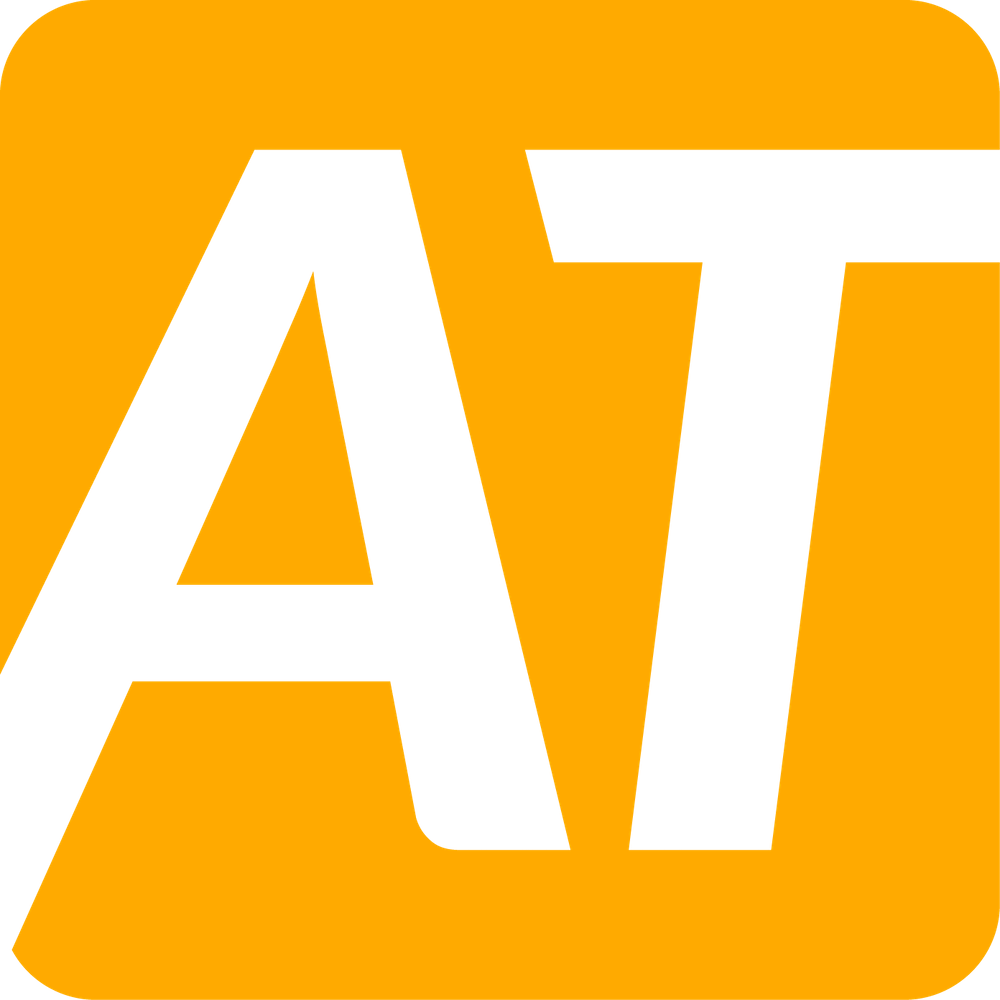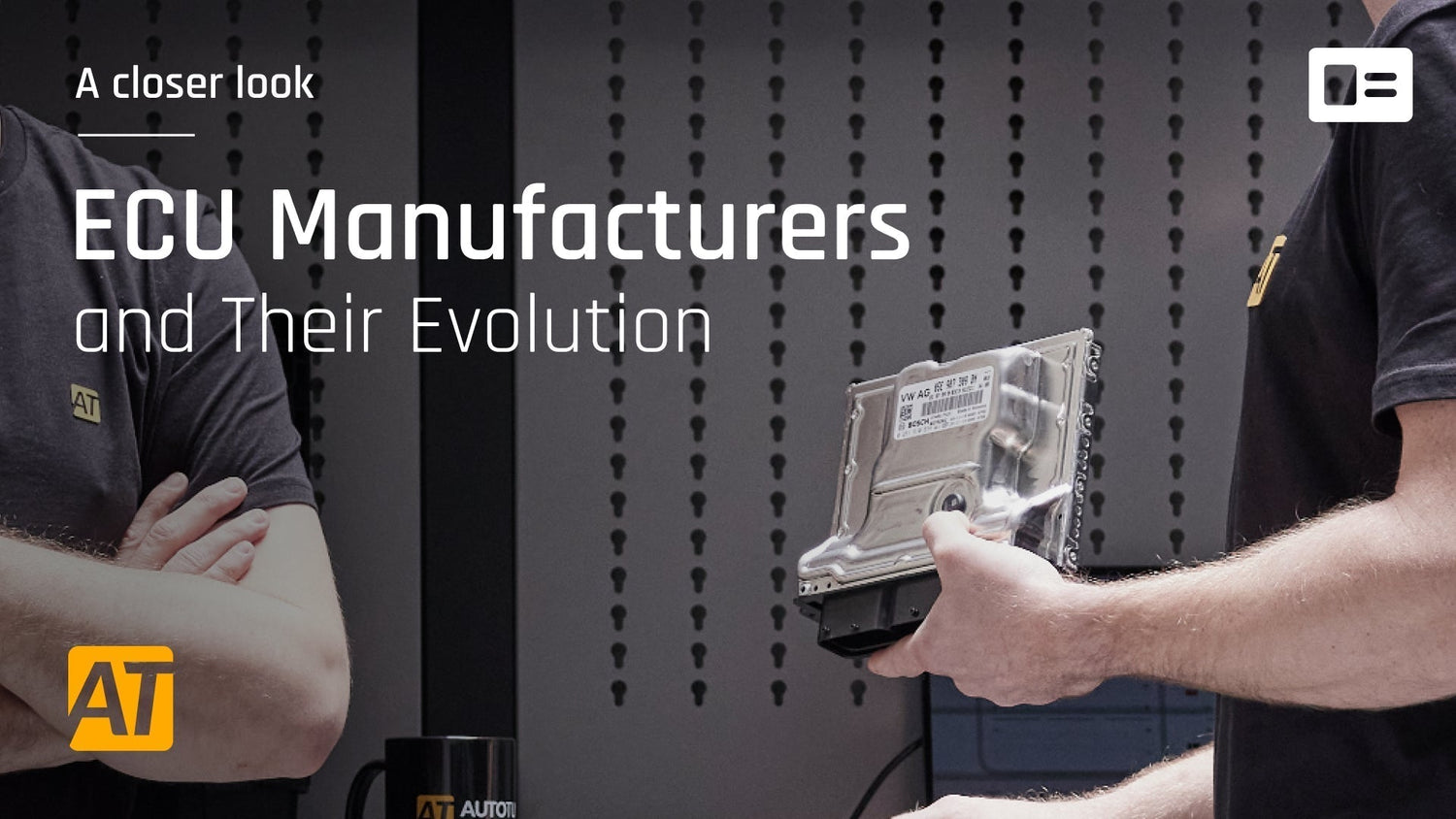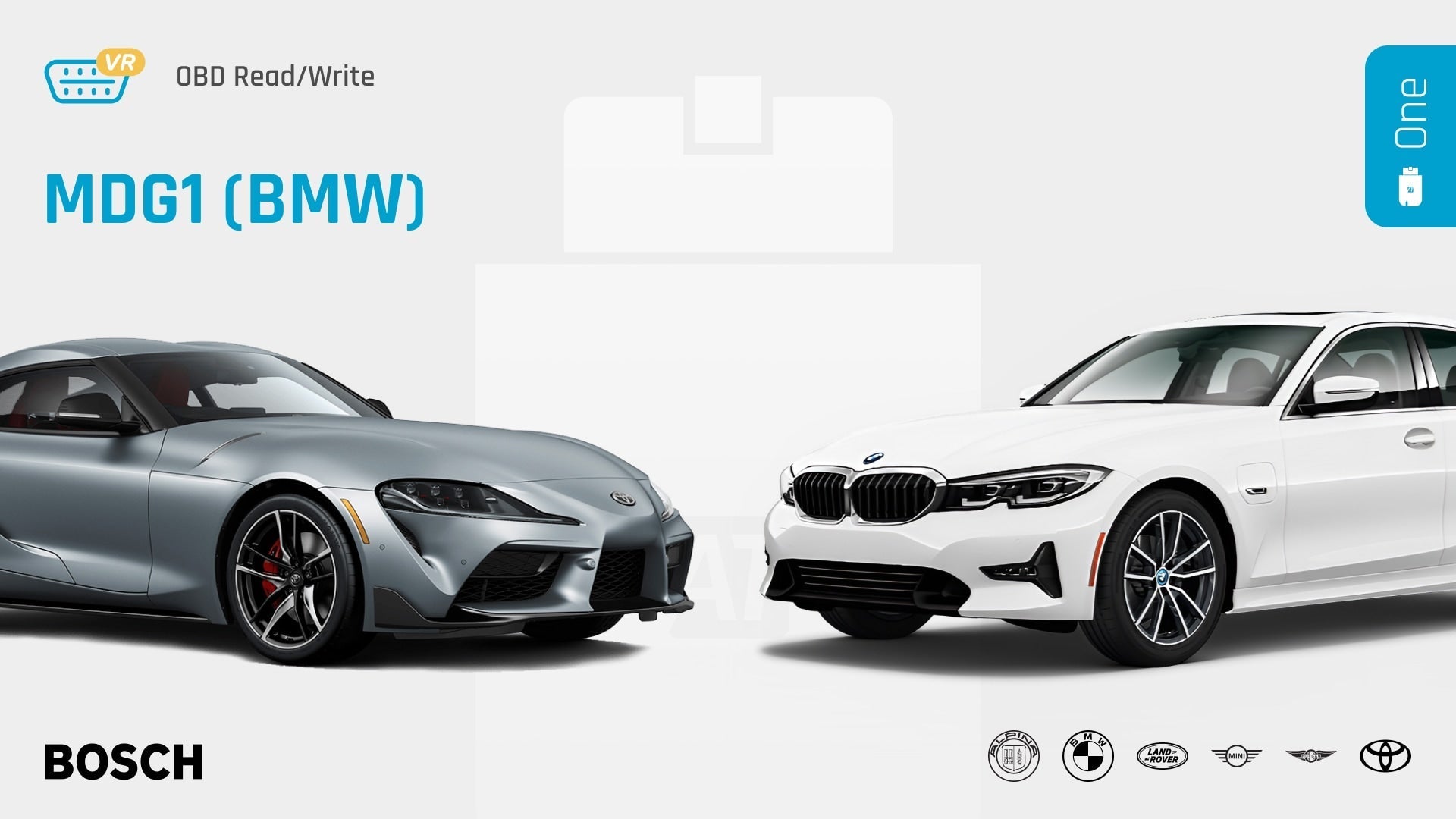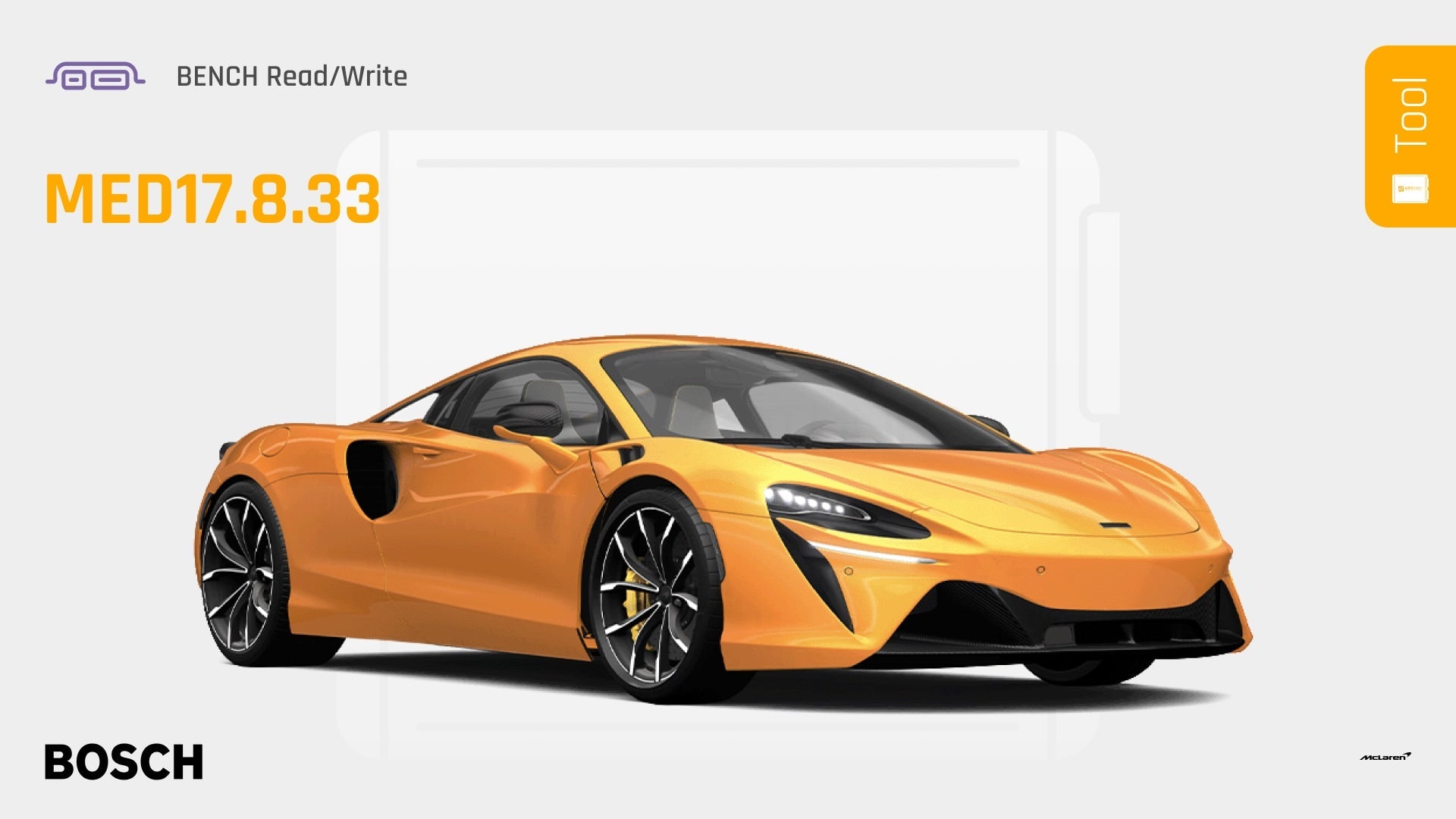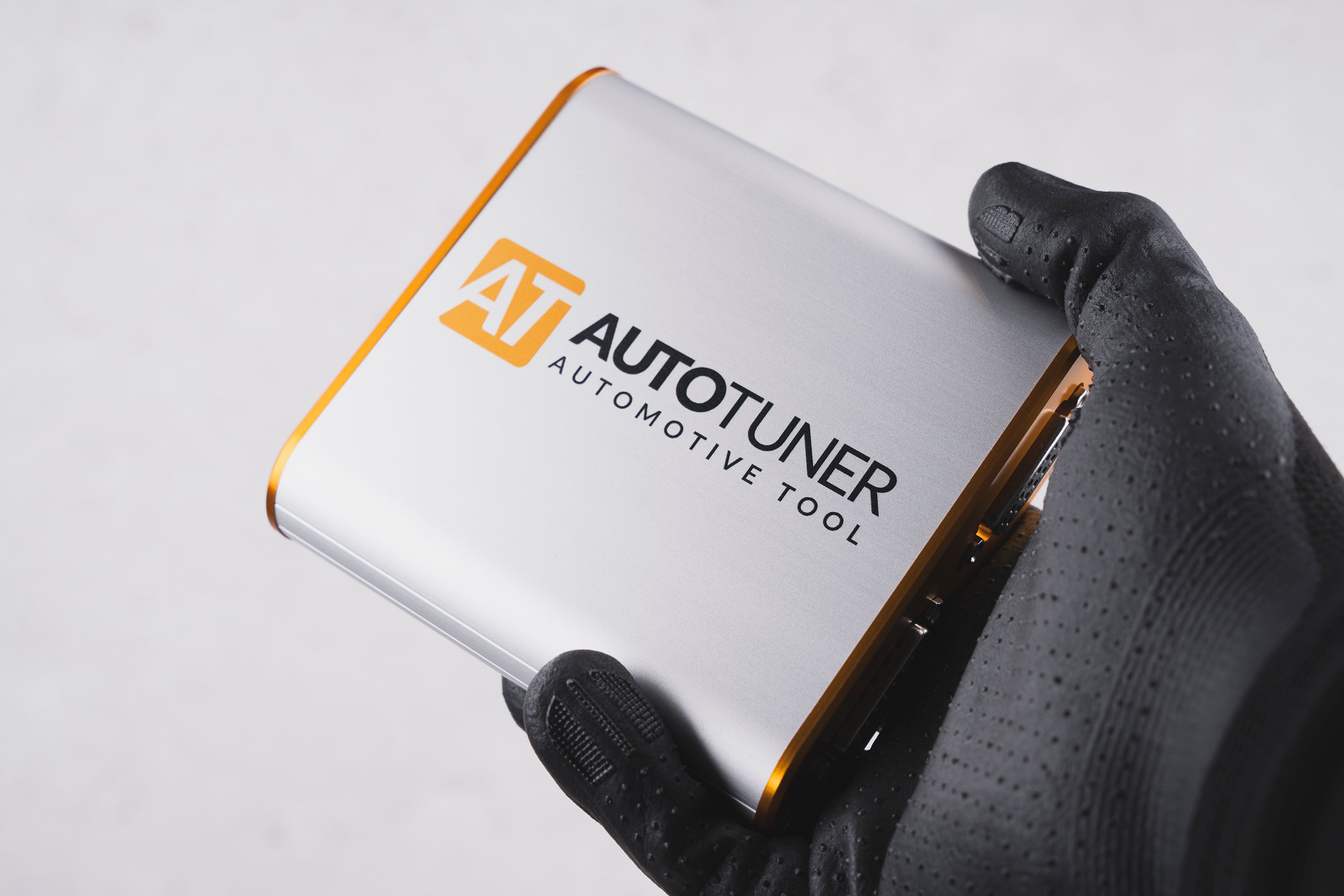Whether you are a novice in the field of engine reprogramming or not, it is important to be able to recognize the different engine control units (ECUs) in this domain. Given the diversity of available ECUs, it can sometimes be difficult to navigate. Moreover, these ECUs have evolved over time, both technically and in terms of their properties.
Let's start by exploring different brands of engine control units to help you select the right ECU and understand why they bear certain names.
Bosch
Bosch is a world-renowned automotive supplier, playing an indispensable role in the industry. It is responsible for producing most of the ECUs found in vehicles worldwide, and its expertise extends far beyond engine control units. Indeed, Bosch is widely recognized for its contribution to safety controllers such as airbags, anti-lock braking systems (ABS), and electronic stability programs (ESP).
To identify a Bosch ECU, one generally just needs to examine the label affixed to it (ECU label). It is interesting to note that many German car manufacturers have historically chosen to work in close collaboration with Bosch. To illustrate this, let's analyze the label of a Bosch EDC17CP44 ECU.

On this label, you can clearly identify that the ECU belongs to the Bosch brand and is used by the VAG group. It should be noted that VAG provides an abundance of detailed information concerning this ECU as well as the associated engine:
-
Bosch Hardware Number: 0281016594
The prefix "0281" indicates it's an ECU for a diesel engine. If the prefix is "0261", then it's associated with a gasoline engine. -
ECU Type: EDC17CP44
This information is often crucial for selecting the appropriate engine control unit during read and write operations. -
Manufacturer Hardware Number: 7P0907401
This is the manufacturer-specific reference that can be found in its parts catalog. -
Engine code: CASA
This engine code is specific to VAG and identifies the particular engine fitted in the vehicle. -
0007:
Software version number, specific to VAG. It represents the software version delivered during the ECU's production, which can be updated or downgraded using the AutoTuner tool via the OBD connection. -
HW: H17:
This is the hardware version or hardware architecture of the ECU. Note that some newer versions, such as H80, cannot be read in bench mode, requiring a different approach.
However, sometimes manufacturers are less generous in terms of annotations, which leaves us with more succinct information, as is the case with this Bosch ECU intended for BMW vehicles. On this label, one can clearly identify the Bosch number "0281013252" as well as another BMW-specific number, "DDE7801710". In such situations, it is imperative for any user to determine the exact type of the ECU, such as "EDC17C06", to know which specific wiring must be applied to access the ECU's content.

To make your task easier, you can search for ECU references directly on the AT Cloud platform once logged in: https://www.autotuner.cloud/toolbox.
This valuable resource will help you decipher the limited information provided by the label and select the correct equipment and appropriate procedures for reprogramming the ECU of this BMW vehicle.
Siemens VDO
Siemens VDO was once a key player in the automotive market, renowned for its expertise in electronic and electrical systems, notably electronic injection systems, electronic dashboards, and navigation systems. However, its status changed as the Siemens VDO engine control unit division was acquired by the giant Continental AG, which at the time specialized in tires, braking systems, and other automotive components.

Continental AG
In 2007, Continental AG made the strategic decision to acquire Siemens VDO Automotive, a transaction valued at approximately 11 billion euros. This acquisition marked a major turning point in the automotive industry, offering Continental the opportunity to strengthen its position as a leading automotive supplier. It also significantly enriched Continental's portfolio by integrating Siemens VDO's cutting-edge technologies.
Over the following years, Siemens VDO products were progressively integrated into Continental's product range, leading to ECUs sometimes bearing the Siemens label and other times the Continental label, while retaining similar final references. This coexistence of brands can sometimes lead to confusion regarding names and instructions.

At Volkswagen Auto Group (VAG), a nomenclature similar to Bosch's was adopted to maintain internal consistency. In the vast majority of cases at Continental, the ECU name is clearly indicated on the label. That is why we have not developed a specific reference list for these ECUs.

It should be noted that within Continental, the division specializing in engine control units was initially named "Powertrain" and was dedicated to powertrain solutions for the automotive industry. In 2019, this division was rebranded Vitesco Technologies, marking a significant turning point in Continental's history, as it increasingly focuses on electric technologies.
Vitesco Technologies
Primarily focuses on electric motors and ECUs for electric vehicles, which clearly reflects its market position. However, it is important to note that the Vitesco brand is also present in the new DME9 ECUs (latest generation gasoline) from BMW. This situation brings us back to a scenario similar to what we encountered in the past, where Simos 19.7 ECUs were initially labeled "Continental" before switching to the "Vitesco" label, while retaining an identical reference.


Delphi
Delphi Corporation was the result of a spin-off from General Motors in 1999, creating a company specialized in the design and manufacture of equipment for the automotive industry. In 2017, Delphi Corporation evolved to give rise to two distinct entities: Delphi Technologies, which was previously the Powertrain division, and Aptiv, which corresponded to the former Delphi Automotive division.
Even today, Delphi continues to equip many vehicles, particularly diesel vehicles such as the DCM6.2V (for VAG) and the DCM7.1 (for PSA), to name but a few.

Regarding the reading of Delphi ECUs, the ECU name is systematically indicated, and you will also often find references specific to the car manufacturer.
It should be noted that in 2020, Delphi Technologies was acquired by the American giant BorgWarner. Despite this acquisition, the Delphi name continues to be displayed on the various ECUs, now under the BorgWarner banner, testifying to the brand's continuity and its expertise in the automotive field.
Mopar
You have probably spotted the Mopar reference on a label at some point. Mopar is the entity responsible for managing spare parts for the FCA group (Fiat - Chrysler - Alfa (and Jeep)). Although the Mopar brand has designed its own ECUs in some cases, in most situations, it is a collaboration with partners such as Continental or Bosch.

When it's a collaboration with Continental, the references displayed on the label are specific to Mopar, which complicates the recognition of the ECU type at first glance. This peculiarity can make the task more complex for users seeking to quickly identify the exact model of the ECU.
Kefico
Much like Mopar, Kefico is the ECU brand associated with the Kia/Hyundai group; it maintains close collaboration with Continental and Bosch for the manufacture of its ECUs. When examining these ECUs, you will systematically find a label that displays the ECU name. Taking the SIM2K-510 as an example, it is based on Continental technology, while the CPEGD3.20.1 is based on Bosch technology, although this is not explicitly specified on the label. Don't worry, you will easily find these specific references in the AutoTuner compatibility list.


ACDelco
ACDelco is an American automotive parts brand owned by General Motors (GM). This brand designs its own engine control units, which are found in many American vehicles.

The nomenclature of ACDelco ECUs is specific to the brand, but it systematically includes the type of ECU. It should be noted that the ACDelco logo is not always present on the labels. For example, in the illustration above, only the logo of GM, the parent company of the group, is visible.
However, despite designing their own ECUs, ACDelco has also established partnerships with Bosch, particularly for diesel vehicles such as the 2.0 CDTI, to name just one example. It is possible to find labels that indicate both Bosch and ACDelco, which may seem surprising.

It should be noted that when searching for compatibility with AutoTuner, you may not find the mention "ACDelco E59", as it is actually an EDC17C59 rebranded under the ACDelco brand. There are also other Bosch ECUs bearing references such as E84 or T93.

Visteon
Visteon was a company specialized in automotive electronics. In 2005, Ford created a holding company with Visteon's underperforming divisions, aiming to revitalize the brand by securing contracts for manufacturing engine control units. Unfortunately, Visteon's engine control unit division was discontinued in 2010.
During this relatively short period, Visteon primarily developed ECUs for American gasoline-powered vehicles. However, a few diesel ECUs were also produced, such as the DCU-101 and DCU-102, which were used notably in the Ford Transit 2.2/2.4 TDCI as well as in other vehicles like the Land Rover Defender.

Valeo, Johnson Controls, and Sagem
In 2001, Johnson Controls, the American specialist in engine control units, acquired Sagem, a French company specializing in automotive equipment. In 2005, it was Sagem, the French automotive supplier, that acquired Johnson Controls with the aim of integrating the engine electronics division into the company. This buyout led to a period where ECUs were found bearing both the Johnson Controls (JCAE) and Valeo brand, but were functionally equivalent.


Subsequently, Valeo's ECUs began to be identified by the designation "V" (e.g., V34), rather than the letter "J" which was previously used for Johnson Controls ECUs. Fortunately, regardless of the brand, reading the labels provides information about the type of engine control unit, which facilitates the search for wiring diagrams. The latest and best-known of Valeo's ECUs is the VD56, which equips Stellantis's 1.2 PureTech engines.
Magneti Marelli
Magneti Marelli, an Italian supplier with over a century of history, continues to supply engine control units for many vehicles, mainly Italian brands. Although renowned brands and high-end engines have gradually turned to Bosch, Magneti Marelli still equips small-displacement Fiat vehicles today, such as the 1.4/2.0 MultiAir engines (e.g., 8GMF / MM10), as well as diesel utility vehicles like the Ducato (MJD9DF). Furthermore, Magneti Marelli maintains a strong presence in the field of motorsport, notably in Formula 1.

When examining the labels of these ECUs, you will notice that the label reading is very comprehensive. It should be noted that the Magneti Marelli brand is not systematically indicated on the ECU, but you may also find references such as FPT (for Fiat Powertrain Technology) or GM when the ECU is used on a GM group vehicle, as is the case for the 1.3 CDTI.
Denso
Denso, whose name means "electricity" in Japanese, is a major player in the automotive electronics industry. This company was once owned by the Toyota group, and although Toyota has reduced its stake, Denso is still a key supplier for many Japanese car manufacturers, notably Toyota (practically all its models), Mazda, Mitsubishi, Nissan, and it also collaborates with a few European manufacturers such as Land Rover, Volvo, and Opel, although this is less common.
The main difficulty when reading the labels and OBD identifications of these ECUs lies in their legibility and the lack of logic in their serial numbers. At Toyota, for example, there is a variety of ECUs with serial numbers that do not necessarily follow a predictable logic, which can complicate their identification.

Hitachi
The last on the list is Hitachi Automotive Systems. This is an ECU widely used in Japanese vehicles such as Nissan, Infiniti, and Honda, in which Honda has held a 33% stake since 2019. Since that year, Hitachi has been rebranded Hitachi Astemo and also encompasses Keihin ECUs, which are mainly found in Honda vehicles.
This ECU is used in models such as the Nissan GTR, as well as in the latest generation Renault Mégane and Alpine. To identify the engine control unit, one can usually find the ECU type and a manufacturer-specific serial number. This is the bare minimum in terms of ECU legibility.

